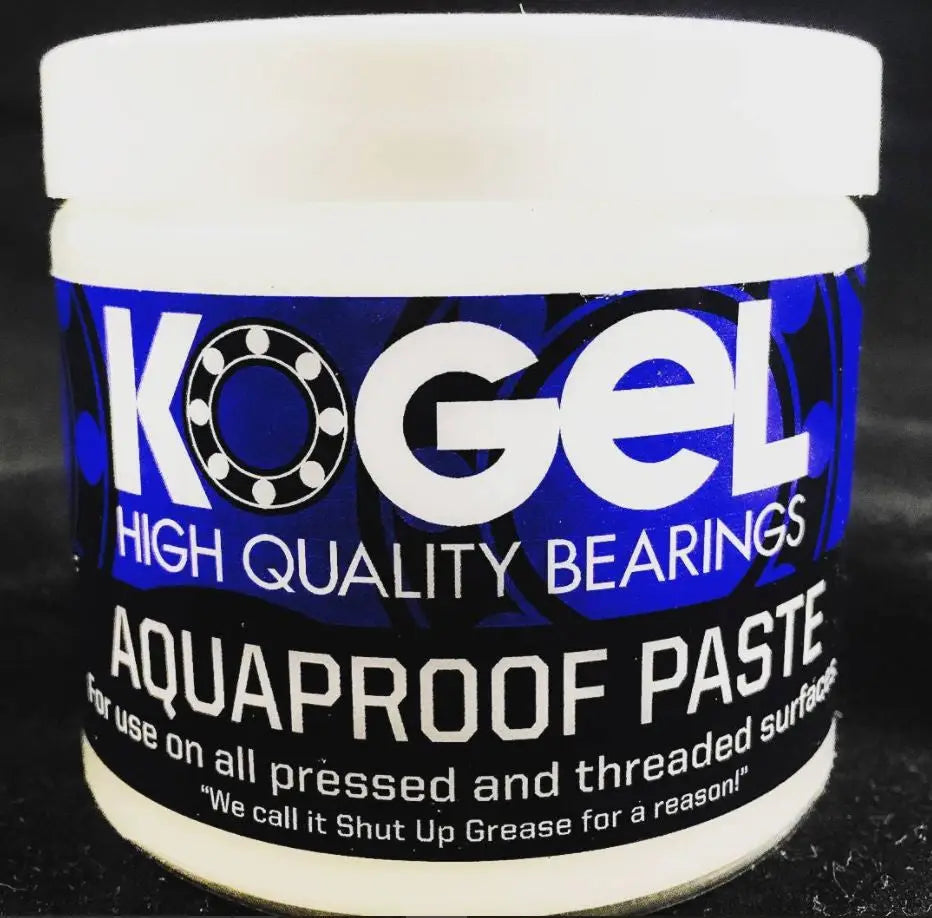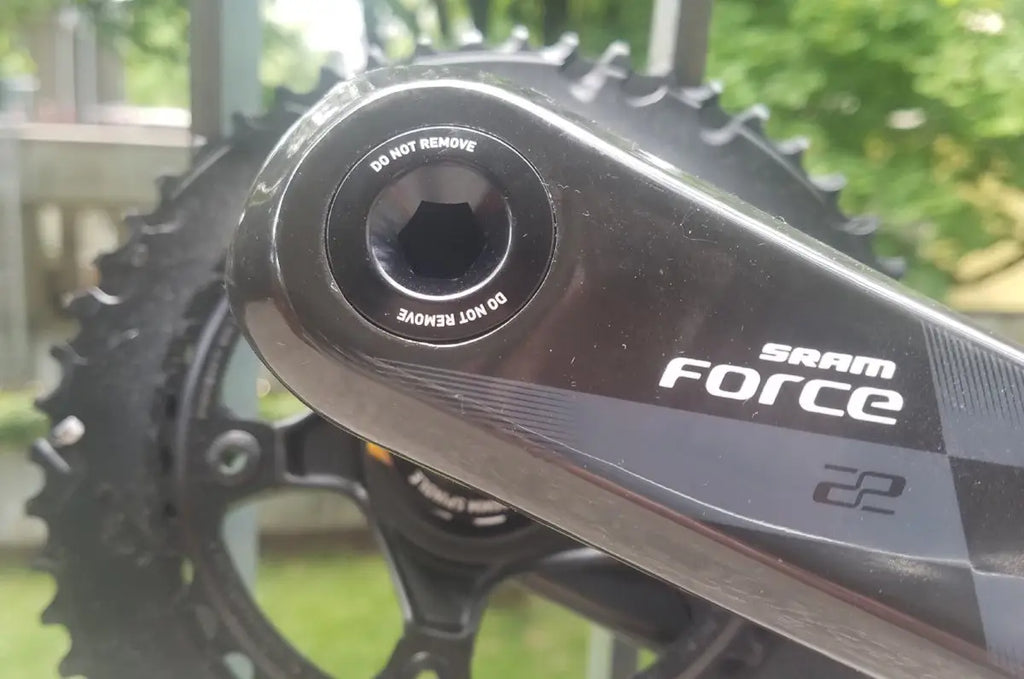Every mechanic dreads the moment when a customer comes into the store with a creaking bottom bracket. While the poor bottom bracket gets blamed for creaking, very often the cause is found elsewhere.
In order to turn frowns upside down, a mechanic needs to go on a scavenger hunt. Checking off boxes and eliminating options. Be kind and understanding next time your shop guy says he needs some time to fix your creak. Many creaks on a bike sound very similar to a creaking bottom bracket. The entire drive train follows the pattern of 'creak when I pedal and stop when I stop pedaling', unlike wheel issues like brake discs that rub and make a sound whenever the bike is moving.
This article will feature many of the usual suspects, as well as a few creaks that can easily be diagnosed as 'not the bottom bracket'.

- Look at the bottom line on this packaging. Morgan Blue's Aqua Proof Paste has been our number one creak solution. It's a magic goop that will silence parts and hold its consistency for years.
After doing a quick reinstall of the bottom bracket with a dab of Morgan Blue Aqua Proof paste, here is a list of things that sound remarkably similar:
chain ring bolts
There are four or five bolts in a traditional chain ring mount, if one of them is loose, it will creak with every pedal stroke. Reinstall all bolts and grease them with Aqua Proof
pedal spindles
Any mechanic worth your time will install pedals with some form of anti seize. As a former mechanic, I have learned never to trust another shop's work. Remove, regrease and reinstall.
shoe cleats
A simple test should reveal this: test ride the bike in non-cycling shoes. If the creak magically disappears: have a good look at loose, worn out cleats or rusty bolts.
crank spindle
This is a challenging one. Many manufacturers make crank arms that are pressed onto the spindle. I remember buying a new mountain bike a few years ago and I could not stop it from creaking for the life of me. To state the obvious: not good for business if you own a bottom bracket company!
After many frustrating hours, I decided to disassemble the crank, specifically the bolt that said 'do not disassemble'. The crank arm is pressed and loctited at the factory. The loctite bond did not hold up and came loose. Aqua Proof came to the rescue.

- Do not remove this little guy??? Sometimes it is OK to not follow the manufacturer's instruction.
derailleur hanger
It is far away from the bottom bracket, yet gets loaded every time you put pressure on the pedals. Have a close look at your drop outs, remove the derailleur hanger and put a dab of grease between frame and hanger.
wheel axle or quick release
Either the front or rear axle or quick release can cause interference with the frame. If you are using lightweight tuning levers, chances increase. Typically I would make sure to have a Shimano QR set in my toolbox to quickly exchange the one found on the bike in my workstand. Old school quick releases with an internal cam system are amazing. The solid ones that come to mind are made by Shimano, Campagnolo and Roval.
A replacement is usually the best recommendation, or you can grease the hub axles for a temporary fix if you are not ready to let go of those purple anodized weight savers.
saddle and seat post
This one is easy to diagnose: creaks when pedaling seated, then stops when coasting: get up and do your best Mark Cavendish sprint. If the creak disappears when standing, it is time for a seat post cleaning and reinstall of the post and saddle.
suspension pivot points
I have never found an easy solution for suspension pivots creaking. A modern mountain bike can have 8 or more bearing seats and all of them are suspect. I would leave this job for when you have eliminated everything else, then overhaul the whole lot of them.
frame
When literally everything else has failed, I have seen aluminum bottom bracket inserts in carbon frames come loose. The frame looks normal, but the bond between the aluminum insert and carbon frame is weakened or broken. There is no solution except calling the manufacturer for a warranty or crash replacement.
fixing the creaks
The follow up article, which can be found here, explains a logical work flow to allocate and fix a creak.

